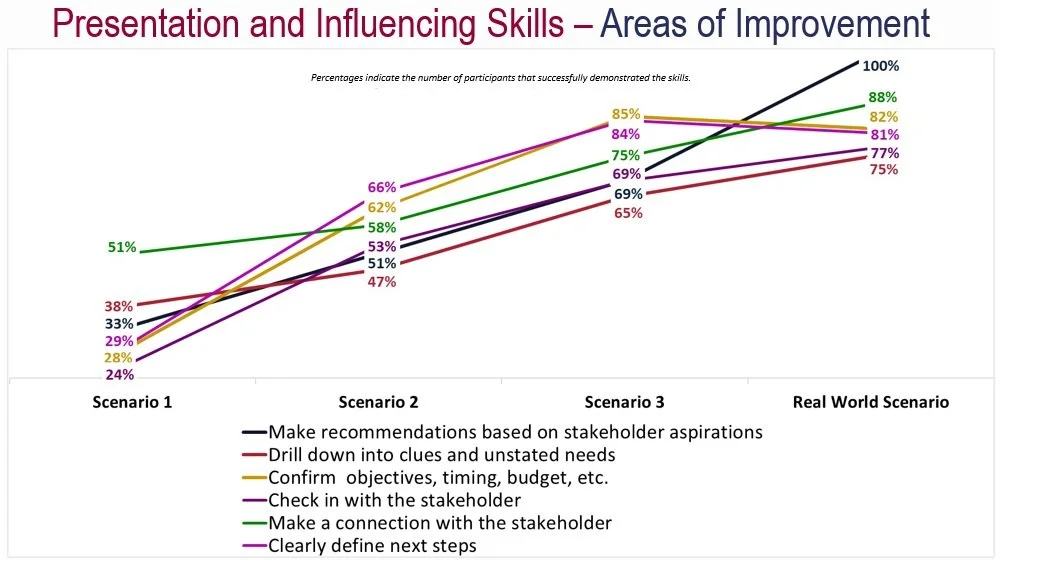Building your influencing skills with Deliberate Practice
Estimated reading time: 1 minute, 10 seconds.
If you are an HR Business Partner, a Learning Consultant, or Director, you bring strong technical or business skills to your role. And if you are missing any specialized skills, you know you can quickly and easily close the gap.
But there's a set of skills critical to your success that you may have overlooked. These are the skills you use when influencing executive stakeholders.
Build the skills that will propel your career forward
To become successful as a business partner or consultant, there are a number of influencing skills that you should practice. They include:
Engaging with executive stakeholders
Communicating your personal value proposition
Understanding the needs of stakeholders
Recommending solutions to stakeholders
Delivering key messages clearly and succinctly
Handling resistance, objections, concerns
Presence and communication
Perhaps you are building these skills through trial and error. If so, you should know that there is a straightforward and accessible way to learn and practice these skills before you find yourself in a meeting with key decision-makers. It's called Deliberate Practice.
Deliberate Practice
In Deliberate Practice, a “Roleplayer Coach” plays your executive stakeholder and practices a challenging but realistic conversation with you. You receive coaching and feedback and have the opportunity to replay the scenario.
This coaching will focus on what you said in the conversation, how you said it, and how the “executive” felt in response.
This combination of practice followed by feedback followed by practice has a number of specific benefits to you as an HR business partner, learning consultant, or director.
Benefits of practicing your influencing skills:
Drive up your impact and influence
Improve your executive presence
Uncover important information about your stakeholder’s needs
Negotiate win-win solutions that work for you and your client
Deal confidently with clients' differences of opinion and resolve objections, questions, and concerns
And you'll build trusting partnerships that will benefit you both in the future
The payoff
Aggregate data on hundreds of participants from multiple organizations demonstrate strong learning, significant behavior change, and lasting impact:
Skills practiced are developed custom for each client and personalized to each participant but improvements like the above are not uncommon.
In addition, participants tell us that virtual deliberate practice is a potent and reliable method for developing influencing skills. But don’t take our word for it, here are their own verbatim comments:
"This was fantastic, I really enjoyed it. It was a good session. It's great to see the skills broken down. You don't always think about each step, even if you're doing them, and it was great to disect them, and think about what's going great, and what could go differently."
“These skills look so easy when you see them on paper but they can be much harder to implement with real executives. It was great to do the practice, and get some feedback and really understand how to use some of these behaviours.”
If you’d like to learn more, please Contact Us, or call us at:
Toronto: 416.366.6296
Toll-Free: 1.866.945.0648
We’re here to help your teams master business communication skills.



